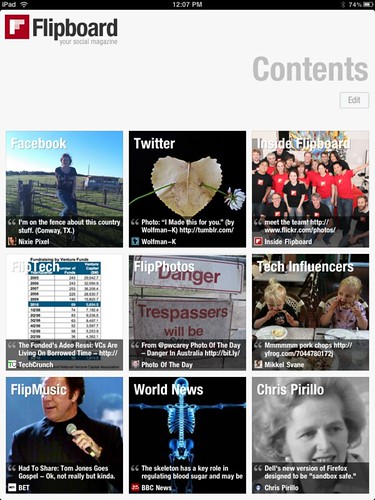There’s a lot of talk amongst our client base of the new business models and innovation possible thanks to the power of the Internet. There’s also a signficant amount of chat about what it means for the pre-web business models – particularly in the media sector.
Look at Waterstone’s, sold last week for a relative pittance. And the share price of the HMV Group – on a persistent downward spiral over the last 12 months – demonstrates how poorly that business has adapted to the Internet age. Contrast that with Amazon or even B&N and you’ll see that real innovation is needed to translate some of those legacy business models to the new delivery platforms we have for media. Amazon is selling more Kindle books than print books – absolutely astonishing. Who would have guessed that things would move this quickly?
B&N, worth around $1bn, as Tom pointed out on Twitter the other day, has managed maintain its valuation where Waterstones et al haven’t. The analysis points out that it has tried to keep on the edge of things with an innovative eBook portfolio in the US. Tom sums it up neatly:
If that’s not an advert for why old media businesses have to aggressively investing in digital platforms, I don’t know what is.
Waterstones’ e-commerce ventures were hopelessly bumbling – first a partnership with Amazon, then its own webstore, and then perhaps a slightly misjudged ebook strategy which I still don’t fully understand today.
I guess, though – that at least they tried. And establishing what insights are needed to drive appropriate customer-centric innovation requires an understanding of customers that goes beyond what they themselves think they need – three years ago when I first got an e-reader, virtually no-one I spoke to was willing to give up the feel of a rustling paperback. We would never have guessed that so many people would be reading everything on Kindle [apps] this soon – but here we are.
The worse thing anyone can do about the Internet is bury your head in the stand. It’s a rolling force for change, whether we like it or not, and is having a dramatic impact on virtually every business I come across – nowhere more dramatically than in the media sector.
My brother talked about the need for smart, digital people in the film and TV industry over on Screen Daily and the apparent dearth of them in his industry. As someone passionate about the media sector here’s hoping that the digital people find their way out of the woodwork and help with the industry in the evolution of its more traditional business models… so there’s not only aggressive investment, but sensible investment in the development of new business models…
 I’m not really writing about NoTW and NewsInt here, but rather using the case of their recent downfall to segway to a different story – that of Public Business Media, my friend Damian’s NFP charity aimed at supporting investigative journalism. I’ve written about it before.
I’m not really writing about NoTW and NewsInt here, but rather using the case of their recent downfall to segway to a different story – that of Public Business Media, my friend Damian’s NFP charity aimed at supporting investigative journalism. I’ve written about it before. 
